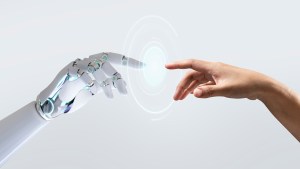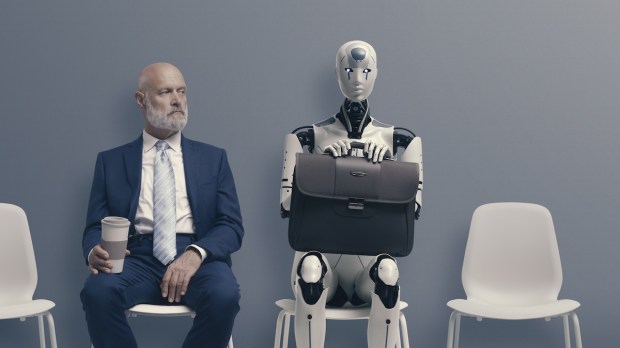AI — Artificial Intelligence — is developing at lightning speed, and the Church is doing its best to keep up.
Since spring of 2022, Mariele Courtois at Benedictine College in Atchison, Kansas, has been working on a Vatican project to investigate Artificial Intelligence, meeting in Vatican City and Rome in the summer of 2023.
The Vatican’s Dicastery for Culture and Education initiated the effort with specialists in philosophy and theology dialoguing with scientists. Their findings have been published in 2024’s Encountering Artificial Intelligence: Ethical & Anthropological Investigations.
The name “Artificial Intelligence” — AI — indicates a variety of new computerized machines that do what only human beings could do until recently: distinguish objects, recognize voices, translate language, and even compose complex written material.
Both Pope Francis’ World Day of Peace message this year, and his message for World Communications Day addressed the issue.
Courtois is a bioethicist who received her doctorate in Moral Theology and Ethics from the Catholic University of America. I asked her about the Vatican’s efforts.
Why did the Vatican want to look at AI?
Courtois said, “AI is speeding up a lot of opportunities and developments very quickly. Because it’s so rapid, that’s something that really requires a lot of teamwork and collaboration.”
As Artificial Intelligence continues to develop, its applications range from the benign to the frightening — from chess-playing machines that develop strategies unknown in human history to military drones that can initiate attacks on human targets.
Courtois said, “It’s causing us to reflect on what makes us unique as human persons if algorithms are able to mimic how we evaluate the world and interact with the world, and to think about the wide difference there exists between AI and the human person.”
What is it that makes human beings different from machines?
“An interior life,” Courtois said. Citing Edith Stein, she described the “idea and awareness of the personal destiny that God awakens in the individual when he creates a unique person. Machines using artificial intelligence can’t have an interior personal life where they are able to offer themselves as self-gift.”
Courtois, who was featured last Fall on a panel marking the 20th anniversary of St. John Paul II’s encyclical Faith and Reason, said machines can’t develop fundamental human qualities including rationality, will, emotions, and community life.
They also can’t do something even more important. “The human vocation is to consecrate the world and devote it back to God,” she said. “Technology can’t participate as a person can.”
But can’t artificial intelligence help human beings a great deal, for instance in diagnosing illnesses and modeling cures?
In her specialization of bioethics, Courtois said her hope is tempered by worries about the consequences of AI for healthcare.
As artificial intelligence grows in its ability to diagnose and prescribe, she said, “We will have to preserve the good of responding to human need and suffering to avoid the problem of distancing the physician from the patient.”
Instead, the Church would like to see AI “helping people to collaborate more with one another, to improve communication and augmenting connection.” Good uses of AI will reflect the gift of human creativity and “help us see the full beauty of the human person.”
In fact, the Church always welcomes new technologies. Doesn’t it?
Yes and no, said Courtois. The Church welcomes scientific advances, but has condemned some new technological innovations as inherently immoral, she said, including certain reproductive techniques and weapons of mass destruction as well as “other technologies that promote marginalization and other moral problems. You can point to the pornography industry, some social media, and wrong values that people have promoted through technology.”
Courtois explained that the text of the 2024 book offers suggestions for technology developers and users to avoid “the dangers of the technocratic paradigm that looks at the technology as an end in itself instead of seeing how it serves the human person.”
How frightened should we be of AI?
Courtois said there are clear dangers, but that with human beings there is always hope.
“Even though technology can present these risks, it is also true that the human person has free will,” she said. “That they have tools available to them is not determinative of how the person will act.”
Ultimately, she said: “The human person is not just able to behold the good in creation, but allow people to see how we are co-creators with God.”




